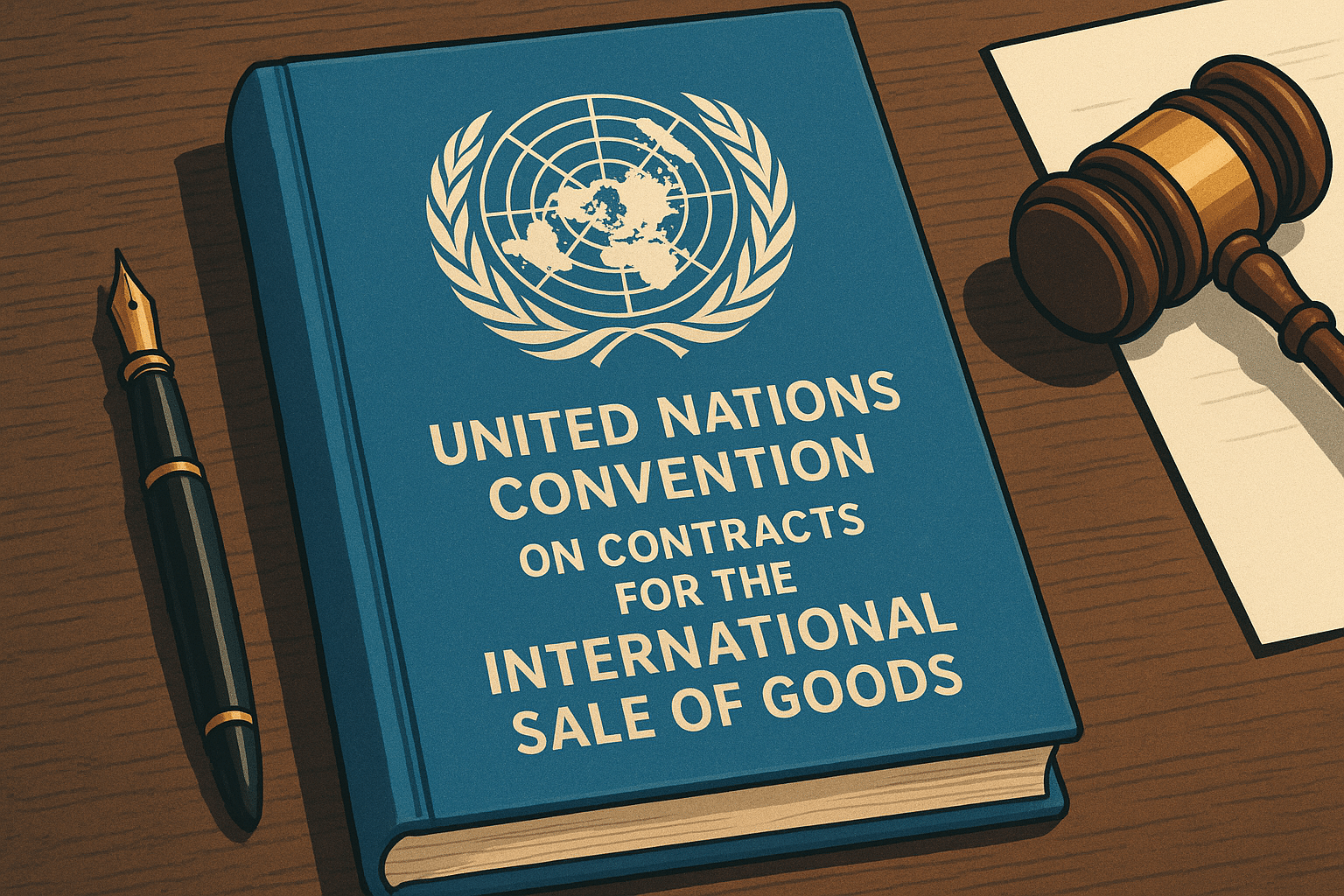The CISG Saves the Day
October 29, 2025

Image by ChatGPT
The United Nations Convention on Contracts for the International Sale of Goods (CISG) has long been something of an enigma to American lawyers. The available evidence suggests that many U.S. lawyers are unaware of this treaty’s existence nearly forty years after it was ratified. In many cases, U.S. lawyers are upset to learn, first, that the CISG exists and, second, that it will govern their international sales agreement to the exclusion of the Uniform Commercial Code. In one recent case, however, an attorney was absolutely delighted to learn that the CISG existed because it saved the case from being dismissed for lack of subject-matter jurisdiction.
In Trico Tarek Factory v. Jetax, Inc., the plaintiff was an Egyptian clothing manufacturer. The defendant was a New York resident named Jeffery Taxier. The plaintiff claimed that the defendant and his company, Jetax, Inc., had purchased goods that it never paid for. It sued Taxier for breach of contract and unjust enrichment in the U.S. District Court for the Eastern District of New York (Magistrate Judge Steven L. Tiscione). The plaintiff alleged that diversity jurisdiction existed under 28 U.S.C. § 1332 because (1) it had its principal place of business in Egypt, (2) Taxier was a resident of New York, and (3) the amount in controversy was in excess of $75,000. The court disagreed. It held that the mere allegation that Taxier was a “resident” of New York was insufficient to establish citizenship there for purposes of Section 1332.
Having reached this conclusion, the court could have simply dismissed the case against Taxier. Instead, the court sua sponte identified a basis for subject-matter jurisdiction that had not been identified by the plaintiff—federal question jurisdiction under 28 U.S.C. § 1331. In the court’s words:
[W]hile Plaintiff’s breach of contract claims do not reference New York law, Plaintiff’s reliance on New York law for the unjust enrichment claims, together with the invocation of diversity jurisdiction, make clear that Plaintiff erroneously brought the breach of contract claims under New York law, though they are clearly governed by the United Nations Convention on Contracts for the International Sale of Goods (“CISG”) . . . For jurisdictional purposes, the CISG is a federal treaty, … [and] claims brought under the CISG fall within the Court’s federal question jurisdiction.
Even though the plaintiffs’ attorneys were seemingly unaware of the CISG’s existence, the treaty wound up saving the case because it supported the exercise of federal question jurisdiction. The court explained:
Typically, this Court would not search for jurisdictional bases that the parties have failed to raise, and Plaintiff’s error would be its own. This is especially so where, as here, Plaintiff’s failure to timely raise the CISG as the basis for its claims would eventually constitute a waiver sufficient to consent to the application of New York law. However, despite having no obligation to do so, courts in this Circuit have occasionally chosen to construe claims that erroneously purport to be based on state law as federal questions, so long as the allegations adequately establish the elements of the federal cause of action on their face . . . The Court therefore respectfully recommends that Plaintiff’s breach of contract claims be held to facially raise a federal question pursuant to 28 U.S.C. § 1331.
While the CISG may be an unknown quantity for many U.S. lawyers, its unexpected appearance is occasionally greeted with elation rather than consternation. Trico Tarek Factory v. Jetax, Inc. is one such case.